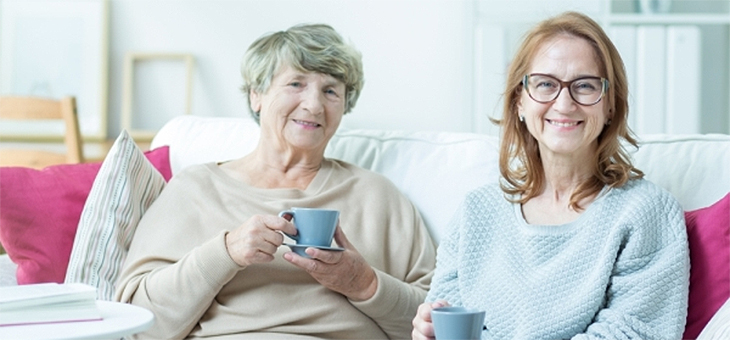Almost anyone can become a carer at any time.
Carers are those who provide unpaid care and support to family members and friends who have a disability, mental illness, chronic condition, terminal illness, an alcohol or other drug issue or who are frail aged.
There are nearly 2.7 million carers in Australia, approximately 12 per cent of the population. Of those 2.7 million, about 856,000 (32 per cent) are the primary carer of someone who is frail aged or has a disability..
Most carers are aged 45 years or older, with a significant proportion – 27.4 per cent of primary carers – over 65 years old.
If you are new to being a carer for a loved one, here are some tips from the experts.
Ask questions
To give your loved one the best care, you have to understand their needs. Set aside time to talk. Find out how they feel and what they want you to do for them. Don’t argue or insist your own opinion is best. Offer ideas, but listen to what they have to say. Show that you’ve heard by repeating back key points, such as “I understand that you want to do more for yourself”.
Get organised
When you care for someone at home, days can feel long and unfocused. Give the days structure by making a schedule. Set times for meals, personal care, household chores, exercise, activities and relaxation. Also set sleep and wake times to ensure both of you get enough rest.
To keep things running smoothly, put prescriptions, insurance information, doctor contacts and health history in one place, such as a multi-pocket folder. Keep track of appointments in a paper, computer or smartphone calendar, and add your own appointments to the calendar to avoid scheduling conflicts.
More than a third of older adults take five or more drugs to treat different conditions. All those medicines can lead to mix-ups and mistakes. Go over the list with your loved one’s doctor and pharmacist to ensure every medicine and dose is correct. Store all medicines in one place for easy access. Use a pillbox to keep organised by day and time.
Keep meals simple
It takes time to prepare three meals a day. Planning ahead can help. Do all the week’s grocery shopping in one trip. Cook a big batch of meals and freeze them.
Look after yourself
It’s very important to look after yourself. This includes eating and sleeping well, exercising, seeing friends and taking a break. It’s good to talk to someone about what you are going through. This could be a friend or other family member, another carer or a counsellor.
Read more at WebMD
If you enjoy our content, don’t keep it to yourself. Share our free eNews with your friends and encourage them to sign up.
Related articles:
How can Frank be a happy retiree?
House plants that remove toxins
Should you nap during the day?

